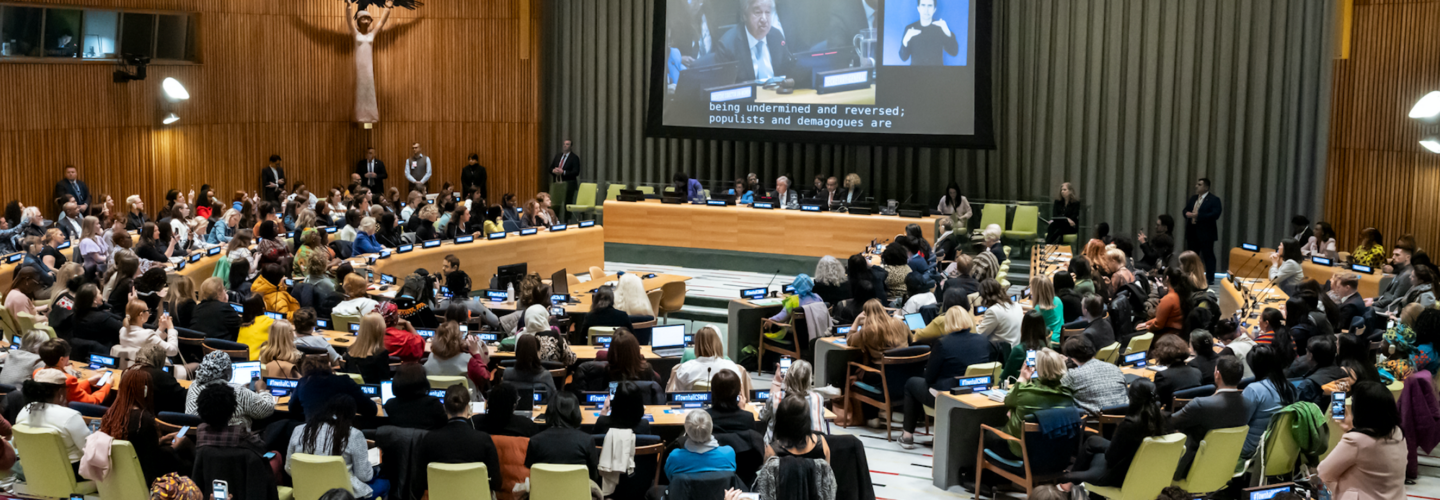A wide view of the town hall meeting with civil society on the occasion of the 68th Session of the Commission on the Status of Women (CSW68). (UN Photo/Mark Garten)
In March, the 68th Commission on the Status of Women (CSW68) convened in New York to negotiate its annual outcome document, the Agreed Conclusions. Increasingly, CSW negotiations have come to reflect the global debate on gender rights between gender rights activists advocating for progressive gender language and right-wing coalitions pushing for conservative, anti-gender language. Despite polarized views on gender, at this year’s CSW, member states were able to come to a consensus that resulted in some positive language for gender rights activists.
Importantly, the negotiation process at CSW can be particularly challenging for two key reasons. First, the Agreed Conclusions must be adopted by consensus. Agreeing on a final document can be a long process when member states hold opposing viewpoints on gender-progressive language; in past CSWs, member states often only reached an agreement late at night on the final day of negotiations. Second, the Agreed Conclusions are negotiated from a zero draft. This means that each year’s negotiation starts anew, and any previously agreed-upon language on gender rights is vulnerable to scrutiny and pushback. In this environment, then, the idea of “gains” takes on a different meaning where even just maintaining the status quo on gender language can be viewed as progress for gender rights. Against this backdrop, members states negotiated CSW68’s Agreed Conclusions around the priority theme “Accelerating the achievement of gender equality and empowerment of all women and girls by addressing poverty and strengthening institutions and financing with a gender perspective.” Read more





